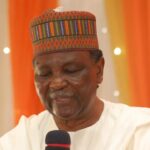
There is a saying that the business of politics is too serious to be left alone for politicians. The simple reason for that contention is that either when they are right or wrong, fallouts from politicians’ enterprise in the exercise of their powers or execution of their functions, usually affect the rest of society – either for good or bad. Just as peace and prosperity of the people may come from such enterprise, so are crises and wars (some even unwarranted and therefore questionable), created when the permutations of politicians go awry. Incidentally, one of the painful aspects is that the winner-takes-all mindset which typical self-serving politicians often deploy in appropriating the perquisites of office to themselves, is usually restricted as much as possible to the good times, as most of them hardly volunteer to suffer along with the masses, when things go wrong.
That is why the present round of the Constitutional amendment exercise as is being driven by the National Assembly, deserves the full attention as well as active engagement by all Nigerians from all walks of life. Even if some sceptics may be tempted to see it as another jamboree by legislators, they are reading the wrong picture and deserve sympathy. The truth of the matter is that the import of the exercise goes beyond the whimsical permutations of any such challenger, whose enterprise may be disposed to vitiate the full appreciation by sections of the public, of the Constitution review exercise.
The need for wider public engagement with the exercise is justified by the fact that the resolutions of the National Assembly are being transmitted to the State Houses of Assembly for the purpose of their concurrence or otherwise. Rather opportune also is the situation whereby the exercise coincides with the clamour for restructuring the country, which has hit a hard-to-ignore crescendo. And if any meaningful restructuring of the country is to succeed, such may not be feasible outside the auspices of the country’s present 1999 Constitution, its failings notwithstanding.
By the last count, the National Assembly is transmitting to the state assemblies a total of 33 resolutions on which the two chambers are in agreement. However in the light of the country’s history – especially with respect to the sundry polarities that define its political economy, it is not difficult to see that the exercise is in for hard knocks and may require a convergence of efforts by several stakeholders in the country to see it through. This convergence of interest by stakeholders is imperative in the light of the trending divergent streams of comments on the exercise.
For instance one school of thought contends that the extant 1999 Constitution remains flawed as it was produced by the military and therefore is bereft of the relevant democratic flavour of a ‘Peoples’ Constitution’. That argument may qualify as patently pedestrian given that a Constitution is not necessarily faulty just because it was designed by the military. After all it is not all the enterprise of the military when in power that are obnoxious. It should not be surprising that in a juxtaposition of the legacies of the military and civilian eras in the country’s political history, many Nigerians may give more credit to the former, even as it is often argued that the best military government is worse that the worst civilian administration. Such is the uniqueness of the Nigerian political terrain!
Yet another school of thought tends to discredit the present exercise as a self-serving venture by the legislators. This is also another hollow premise for appraising the merit of the exercise as in the light of the unanimously acknowledged imperfections of the 1999 Constitution its amendment remains the responsibility of the legislators. A more proactive follow-up to their enterprise is for all and sundry to prevail on the state houses of Assembly to vote politically rightly, and thereby change the country’s politics for good.
It need not be emphasised that the country’s democracy is presently only practiced in the breach. It also does not need undue elaboration that beyond the federal tier of governance democracy is in chains in the country. While it may be fashionable to blame the military which ceded power to civilian authority almost two decades ago in 1999, not a few Nigerians and foreigners alike are disturbed by the excesses of several state governors who have virtually converted their states into personal empires where their word remains unchallenged, even when it is in conflict with the extant provisions of the Constitution they are on oath to defend?
In a related context, the wide ranging scope of the resolutions and the deeply entrenched challenges which the resolutions are expected to face, qualify the Constitution review exercise as a dress rehearsal for the much trumpeted clamour for restructuring of the country. Hence it even offers the advocates of restructuring, the opportunity to use it as a testing ground for the success or failure of their project. For if the amendment of a few clauses of the Constitution, which is tacitly expected to facilitate some form of restructuring of the country has been proving thorny over several years and different attempts, then the challenges associated with issues surrounding a more profound tamper with the country’s current profile, can easily be imagined.
Constitutional amendment remains a routine exercise in virtually all democracies, and is even more relevant in a country like Nigeria with its unique challenges of multiplicity of federating units. The history of the country testifies to the numerous efforts at providing the most acceptable framework for co-habitation by all the groups that make up the country. The present exercise is only one in a stream of initiatives to arrive at the land of promise.
Of the options paraded in respect of fostering a more workable Constitution for the country, hardly will a brand new one be feasible just as it remains nonsensical to reinvent the wheel. More realistic is the option of continually amending the extant document until it attains a best-fit profile that is compatible with the country of the common dream of all Nigerians.

 Join Daily Trust WhatsApp Community For Quick Access To News and Happenings Around You.
Join Daily Trust WhatsApp Community For Quick Access To News and Happenings Around You.


